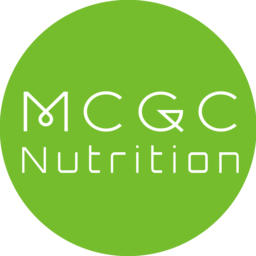Looking to improve your diet but don’t know where to start? If so, you’re in luck! In this blog post, we’ll be sharing five tips for healthier eating. By following these tips, you’ll be able to improve your overall health and wellbeing. So what are you waiting for? Let’s get started!
First, make sure you’re getting enough protein.
Protein is essential for building muscle and maintaining a healthy weight. Including it at every meal is also great to support satiety and keep you fuller longer. How much? See my article here: https://www.mcgcnutrition.ca/en/articles/vitamin-supplement/
Ever hear the saying ‘eat a rainbow”?
Having a variety of fruits and vegetables on the plate encourages to benefit from different nutrients. These nutritious foods provide the essential vitamins and minerals that your body needs.
Fat can help with reaching a healthy weight!
Of course, I am thinking of healthy fats! Think of your extra virgin olive oil (or EVOO), nuts, seeds and fatty fish. Eating a Mediterranean diet is rich in unprocessed healthy fats rich in monounsaturated fat and polyunsaturated fats that show benefits such as healthy mental ageing, cardiovascular health and promoting a healthy weight!
Go green!
Dark leafy greens, of course, I need to talk about these! These are definitely a powerhouse of nutrition-rich in vitamin, mineral and antioxidants. What’s more, they are also a source of vitamin K which also plays an interesting role in protecting against osteoporosis. That right! I did not make a typo! We all know that calcium and vitamin D are important for bone health but apparently so is vitamin K. So spinach, kale and cabbage are a great addition to a healthy diet!
Love your plant protein and limit red meat to 2 servings per week!
According to the British Medical Journal, “A decrease in consumption of processed or unprocessed red meat of at least half a serving per day was not associated with mortality risk.”(1)
Choose options like pulses and beans is a great option to add protein to the plate and limit or replace red meat. There is a lot to love about plant proteins! Get create and add lentils to a salad, tofu in a stir fry and even make a vegetarian chilli with black beans.
Stay hydrated!
This one seems simple, but so often to I hear that it is hard to remember to drink. My trick, keep a bottle of water with you at all times to track your drinking and remind yourself to get enough. How much is enough? For most Canadians, 2L (or 8 standard 250ml glasses) is what you should be aiming for.
Bonus tip – Get moving!
Exercise is essential for maintaining a healthy weight and preventing diseases like cancer and heart disease. Don’t like to exercise? No problem! Walk or bike to work, take the escalators instead of the escalator, take public transportation instead of driving…even dance in your living room or go out and play a little hockey with your kids. There are plenty of ways of keeping active, even if the gyms are closed during the pandemic.
The key to a healthy diet is variety, which means you need to eat fruits and vegetables of all colours. You also want to include different types of proteins in your diet like fish, chicken or turkey and plant proteins like beans, lentils and chickpeas too! Healthy fats are important for health so make sure you’re getting enough from healthy sources such as fatty fish, walnuts, flaxseeds and olive oil. Eating leafy greens can help curb hunger because they contain fibre that takes longer than other foods to digest – this will keep you feeling full for longer periods between meals! Finally, drinking water every day (at least eight glasses) is important to meet the body’s needs.
References:
Zheng Y, Li Y, Satija A, et al. Association of changes in red meat consumption with total and cause specific mortality among US women and men: two prospective cohort studies. BMJ. 2019;365:l2110. Published 2019 Jun 12. doi:10.1136/bmj.l2110
